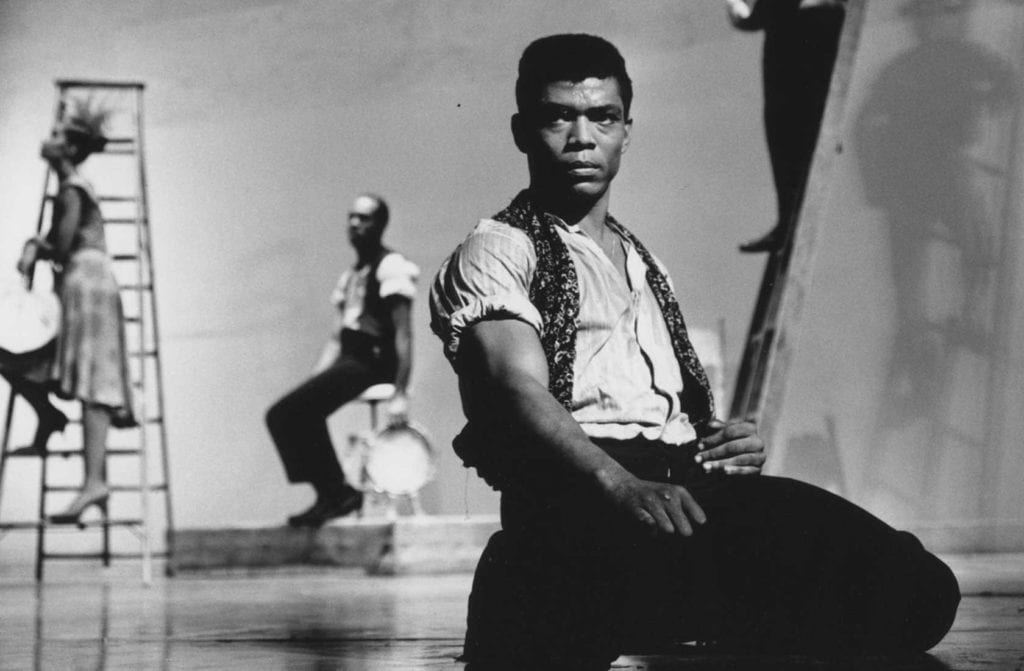
The 23rd annual Roxbury International Film Festival (RoxFilm) draws to a close on Saturday, June 26 with the in-person-only screening of the riveting documentary “AILEY” from award-winning director Jamila Wignot. The film screens at 6:30 p.m. at the Museum of Fine Arts. A pre-recorded Q&A with the director will premiere on YouTube after the screening at 8:30 p.m.
“AILEY” is an immersive portrait of the visionary and elusive Alvin Ailey, who founded one of the world’s most renowned dance companies, the Alvin Ailey American Dance Theater, in 1958. Through never-before-heard audio interviews of Ailey himself, he recounts his life, from being raised by a single mom in segregated Rogers, Texas during the Depression of the 1930s, to moving to Los Angeles when he was 12 and discovering the theater at the age of 14, to arriving in New York City in 1954, finding his niche as a choreographer, and founding his eponymous dance troupe.
Wignot says part of her journey in bringing the iconic dancer and choreographer life to the screen was to give him his due as an artist and to really think about what was informing his artistic journey. “I think I’m inclined to go in that direction because of my own thinking about my art and how I want to tell stories,” says the director by phone recently.
In the film, Wignot weaves in archival dance footage and interviews from former Ailey dancers, colleagues and friends, such as Judith Jamison, Bill T. Jones, and Carmen De Lavallade, to round out the story of the trailblazer who interpreted the Black American experience through dance.
The director first saw an Alvin Ailey production when she was in college. “It was kind of an awakening of an experience to realize that this kind of storytelling could happen on the stage through dance,” she recalls. “When I discovered Ailey’s testimony about his experience seeing Katherine Dunham—that’s how I felt seeing Ailey. That same sort of feeling of closeness and a sense of being seen as you were seeing.”
Wignot, who graduated from Wellesley College, is not one of those people who knew she wanted to be a filmmaker as a child. Her first job after graduation was working in the archival research department at WGBH-TV, and that experience ignited an interest in that area, which still fascinates her to this day. “It’s about being able to sort of excavate that material and to create new ways of seeing,” she says.
The filmmaker’s body of work includes directing and producing two episodes of the 2013 PBS series “The African Americans: Many Rivers to Cross.” The series, which won Peabody, Emmy and NAACP Awards, was hosted by Henry Louis Gates Jr. and chronicled the 500-year history of African Americans. In 2017, she teamed up with Gates again in directing three episodes of “Finding Your Roots.” Wignot also produced “The Rehnquist Revolution,” the fourth episode of the WNET series, “The Supreme Court.”
With familial ties to Massachusetts on her father’s side, Wignot is excited that her film is screening at RoxFilm. “This is exactly where we wanted the film to reach,” says Wignot. She hopes that the audience on Saturday will gain an understanding of Ailey as an artist. “I hope that people will think about what it means in terms of the stories that he chose to center, and what he looked at, and where he chose his inspiration from,” she says, “and that kind of real wealth and beauty of his particular experience in the world.”









